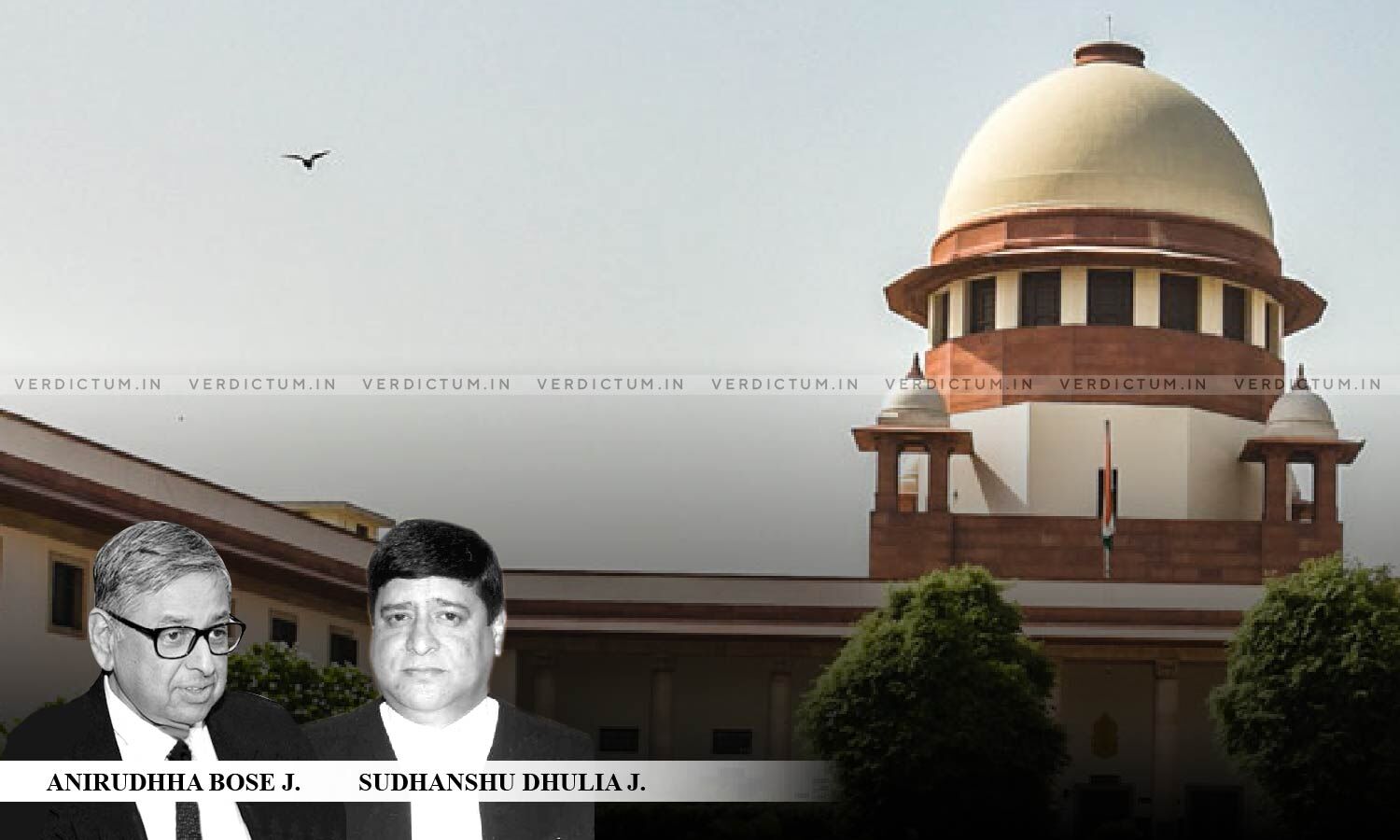Mere Participation In Seminars Cannot Constitute Offence Under Bail-Restricting Sections Of Unlawful Activities (Prevention) Act: Apex Court

The Supreme Court while dealing with a batch of two appeals against the two judgments of the Bombay High Court has held that mere participation in seminars cannot constitute an offence under the bail-restricting Sections of the Unlawful Activities (Prevention) Act, 1967.
The two-Judge Bench of Justice Aniruddha Bose and Justice Sudhanshu Dhulia said, “The association of the appellants with the activities of the designated terrorist organisation is sought to be established through third party communications. Moreover, actual involvement of the appellants in any terrorist act has not surfaced from any of these communications. Nor there is any credible case of conspiracy to commit offences enumerated under chapters IV and VI of the 1967 Act. Mere participation in seminars by itself cannot constitute an offence under the bail-restricting Sections of the 1967 Act, with which they have been charged.”
The Bench noted that neither the provisions of Section 18 nor 18B can be invoked against the appellants prima facie at this stage.
Senior Advocates Rebecca John and R. Basant and Advocate N. Sai Vinod represented the appellants while Solicitor General Tushar Mehta, ASG K.M. Nataraj, and Advocate Aaditya Aniruddha Pande represented the respondents.
Brief Facts -
The appellants preferred appeals against the judgments of the High Court which rejected their prayers for bail. A Special Judge under the Unlawful Activities Act had dismissed their bail pleas and the detentions of the appellants was on the basis of the same FIR in respect of the offences under Sections 121, 121A, 124A, 153A, 505(1)(b), 117, 120B read with Section 34 of the Indian Penal Code, 1860 (IPC) and Sections 13, 16, 17, 18, 18B, 20, 38, 39 and 40 of the 1967 Act.
The incident which prompted the filing of the aforesaid FIR was in relation to a programme held in 2017 and its organisers were the activists of Kabir Kala Munch, a cultural organisation. There were various events in connection with the said programme, which according to the prosecution, were provocative in nature and had the effect of creating enmity between caste groups leading to violence and loss of life, as also state-wide agitation. There were books kept at the venue, which, according to the maker of the FIR were also provocative and there were incidents of violence, arson, and stone pelting near Bhima-Koregaon.
The Supreme Court in view of the facts and circumstances of the case observed, “… to bring the appellants within the fold of Section 38 of the 1967 Act, the prosecution ought to have prima facie establish their association with intention to further the said organisation’s terrorist activities. It is only when such intention to further the terrorist activities is established prima facie, appellants could be brought within the fold of the offence relating to membership of a terrorist organisation. To bring within the scope of Section 38 of the 1967 Act, it would not be sufficient to demonstrate that one is an associate or someone who professes to be associated with a terrorist organisation. But there must be intention to further the activities of such organisation on the part of the person implicated under such provision.”
The Court took note of the fact that the graver the offence, the greater should be the care taken to see that the offence would fall within the four corners of the Act. The Court further disagreed with the contention of NIA (National Investigation Agency) that the appellants have committed the offence relating to support given to a terrorist organisation.
“We have also observed earlier that mere possession of the literature, even if the content thereof inspires or propagates violence, by itself cannot constitute any of the offences within Chapters IV and VI of the 1967 Act. … There has been no credible evidence against the appellants of commission of any terrorist act or enter into conspiracy to do so to invoke the provisions of Section 43D (5) of the 1967 Act”, held the Court.
The Court said that as far as raising funds for a terrorist organisation is concerned, it does not think at this stage, in the absence of better evidence, the account statement is credible enough to justify invoking the bail-restricting clause by attracting Section 40 of the 1967 Act.
“Here, we have to satisfy ourselves that the specified offences alleged to have been committed by the appellants cannot be held to be prima facie true. … Juxtaposing the appellants’ case founded on Articles 14 and 21 of the Constitution of India with the aforesaid allegations and considering the fact that almost five years have lapsed since they were taken into custody, we are satisfied that the appellants have made out a case for granting bail”, added the Court.
The Court observed that allegations against the accused are serious but for that reason alone, bail cannot be denied to them.
Accordingly, the Court allowed the appeals, granted bail to the appellants, and set aside the judgments.
Cause Title- Vernon v. The State of Maharashtra & Anr. (Neutral Citation: 2023 INSC 655)


